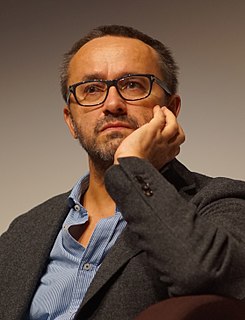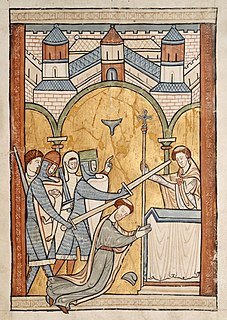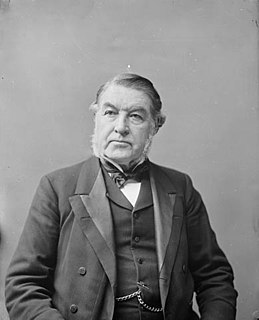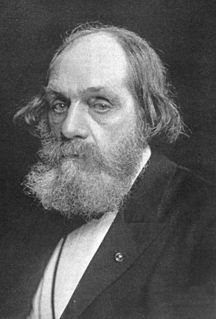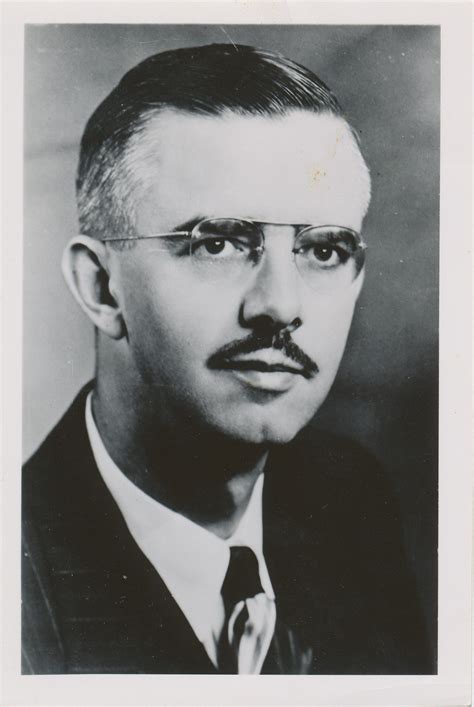Ein Zitat von Charles Hodge
Es besteht daher kein Zweifel daran, dass Presbyterianer den Grundsatz umsetzen, dass die Macht der Kirche bei der Kirche selbst liegt und dass das Volk ein Recht auf einen wesentlichen Anteil an ihrer Disziplin und Regierung hat.
Verwandte Zitate
Kirche, geistliche Macht und Exekutive wirken heute vereint in einem System, das den Menschen gegenübertritt. Dieses Bündnis oder diese Zusammenarbeit zwischen der geistlichen Macht und der Exekutive, zwischen der Kirche und der Regierung, nimmt der Kirche leider ihre grundlegende Mission. Es nimmt ihnen das Recht, über moralische oder ethische Themen zu sprechen.
Die Kirche Christi besteht aus zwei Ordnungen, dem Klerus und dem Volk, wobei die eine die Sorge der Kirche trägt, dass alle für die Erlösung der Seelen regiert werden; die andere besteht aus Königen, Fürsten und Adligen, die eine weltliche Regierung ausüben müssen, damit alles zum Frieden und zur Einheit der Kirche führt.
Nichts auf der Welt hat ein größeres Potenzial, Leben zu verändern und die Arbeit Seines Reiches in Ihrer Gemeinde durchzuführen, als Ihre örtliche Kirche. Es gibt nichts Besseres als die örtliche Kirche, wenn sie richtig funktioniert. Seine Schönheit ist unbeschreiblich. Seine Kraft ist atemberaubend. Sein Potenzial ist unbegrenzt. Keine andere Organisation auf der Welt ist wie die Kirche. Nichts kommt dem auch nur annähernd nahe.
Wir müssen die spirituelle Krankheit der Kirche vermeiden, die selbstreferenziell werden kann: Wenn dies geschieht, wird die Kirche selbst krank. Es ist wahr, dass Unfälle passieren können, wenn man auf die Straße geht, wie es jedem Mann und jeder Frau passieren kann. Aber wenn die Kirche in sich selbst verschlossen und selbstbezogen bleibt, altert sie. Zwischen einer Kirche, die auf die Straße geht und einen Unfall hat, und einer Kirche, die an Selbstreferenzialität erkrankt ist, habe ich keine Zweifel daran, die erste zu bevorzugen.
Eine gesunde Kirche ist keine Kirche, die perfekt und ohne Sünde ist. Es hat nicht alles herausgefunden. Vielmehr ist es eine Kirche, die ständig danach strebt, im Kampf gegen die gottlosen Wünsche und Täuschungen der Welt, unseres Fleisches und des Teufels auf Gottes Seite zu stehen. Es ist eine Kirche, die ständig versucht, sich dem Wort Gottes anzupassen.
Wie Sie wissen, steht die Trennung von Kirche und Staat nicht zur Diskussion oder Änderung. Gemäß unserer Verfassung kann keine Kirche oder Religion von der US-Regierung unterstützt werden. Wir wahren die Religionsfreiheit, so dass ein Amerikaner entweder in der Kirche seiner Wahl Gottesdienst feiern oder sich dafür entscheiden kann, überhaupt keine Kirche zu besuchen.
Die Kirche selbst muss über ihre eigenen Grenzen hinausgehen und das Evangelium zu jedem Geschöpf bringen, sonst ist sie keine Kirche Christi; und jeder gegenseitige Verbesserungsclub, der das denkt, indem er seinen Shakspearo liest oder seine hübschen Tableaus spielt oder indem er. Diese oder jene kleine Lektüre von Spenser und Chaucer, es wird sich in eine höhere Kultur- oder Lebensordnung erheben, ist völlig falsch, es sei denn, es ist ein wesentlicher Teil seiner Pflicht, in die Welt hinauszugehen und diejenigen zu finden, die das tun fallen herab und erhebt sie zur Majestät der Freien, die Söhne Gottes sind.
Ich glaube an die Trennung von Kirche und Staat. Die Regierung hat das Recht, zu bestimmen, was in einem Zivilverfahren geschieht, beispielsweise in einem Gerichtsgebäude. Und religiöse Menschen haben das Recht zu bestimmen, was in einer Kirchengemeinde geschieht. Es sind zwei völlig getrennte Dinge.
Ich hatte mich nicht nur dem Christentum angeschlossen, sondern auch der etablierten Kirche von England. Das hat eine besondere Geschichte und ich denke, wir haben sie im 19. Jahrhundert eher verloren, wir wurden so sehr Teil des Imperiums und des Kolonialismus, dass die Sprache der Church of England immer noch diese viktorianische Zeit widerspiegelt. Es überrascht nicht, dass im Laufe des 20. Jahrhunderts Menschen die Kirche verließen, und ich kann mir vorstellen, welche Rolle die Kirche dabei spielt, Menschen zu verlieren.

